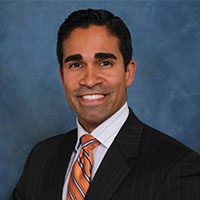Palm Tree Misdemeanor Lawyer, New York
Sponsored Law Firm
-
 x
x

Click For More Info:
-
Law Office of Mark S. Guralnick
55 Madison Avenue 4th Floor Morristown, NJ 07960» view mapCriminal Defense Law Dedicated. Fearless. Successful.
Mark S. Guralnick and his legal team have helped clients throughout the USA and across the world by applying unparalleled dedication and hard work to each case.
800-399-8371
Zev Goldstein
✓ VERIFIEDMotor Vehicle, DUI-DWI, Criminal, Misdemeanor, Felony
Attorney Zev Goldstein fighting traffic tickets and other crimes for 30 years
Attorney Zev Goldstein specializes his practice in handling traffic violations and driving-related crimes such as speeding, DWI/DUI, Aggravated Unlice... (more)
Angel I. Falcon
✓ VERIFIEDCriminal, DUI-DWI, Felony, Misdemeanor, Traffic
Angel I. Falcon is a Dutchess County based general practice catering to the legal needs of individuals and businesses in the Hudson Valley and surroun... (more)
John Michael Schwarz
Real Estate, Pension & Benefits, Misdemeanor, Medical Malpractice
Status: In Good Standing Licensed: 36 Years
Anthony John Davidowitz
Immigration, Employment Contracts, Child Support, Misdemeanor
Status: In Good Standing Licensed: 16 Years
Brandon Charles Ozman
Education, Dispute Resolution, Criminal, Bankruptcy & Debt, Misdemeanor
Status: In Good Standing Licensed: 36 Years
Kenneth Puig
DUI-DWI, Misdemeanor, Personal Injury, Traffic
Status: In Good Standing Licensed: 27 Years
FREE CONSULTATION
CONTACTJames Winslow
Criminal, DUI-DWI, Felony, Misdemeanor
FREE CONSULTATION
CONTACTEllen B. Holtzman
Patent, Deportation, Family Law, Divorce & Family Law, Misdemeanor
Status: In Good Standing Licensed: 42 Years
Natasha Marie Turner
Divorce & Family Law, Misdemeanor, Criminal, Collection
Status: In Good Standing Licensed: 19 Years
 Mark Guralnick Morristown, NJ
Mark Guralnick Morristown, NJ AboutLaw Office of Mark S. Guralnick
AboutLaw Office of Mark S. Guralnick Practice AreasExpertise
Practice AreasExpertise


